Best Stargazing Events of December 2014 (Sky Map Gallery)
December's Full Moon and More
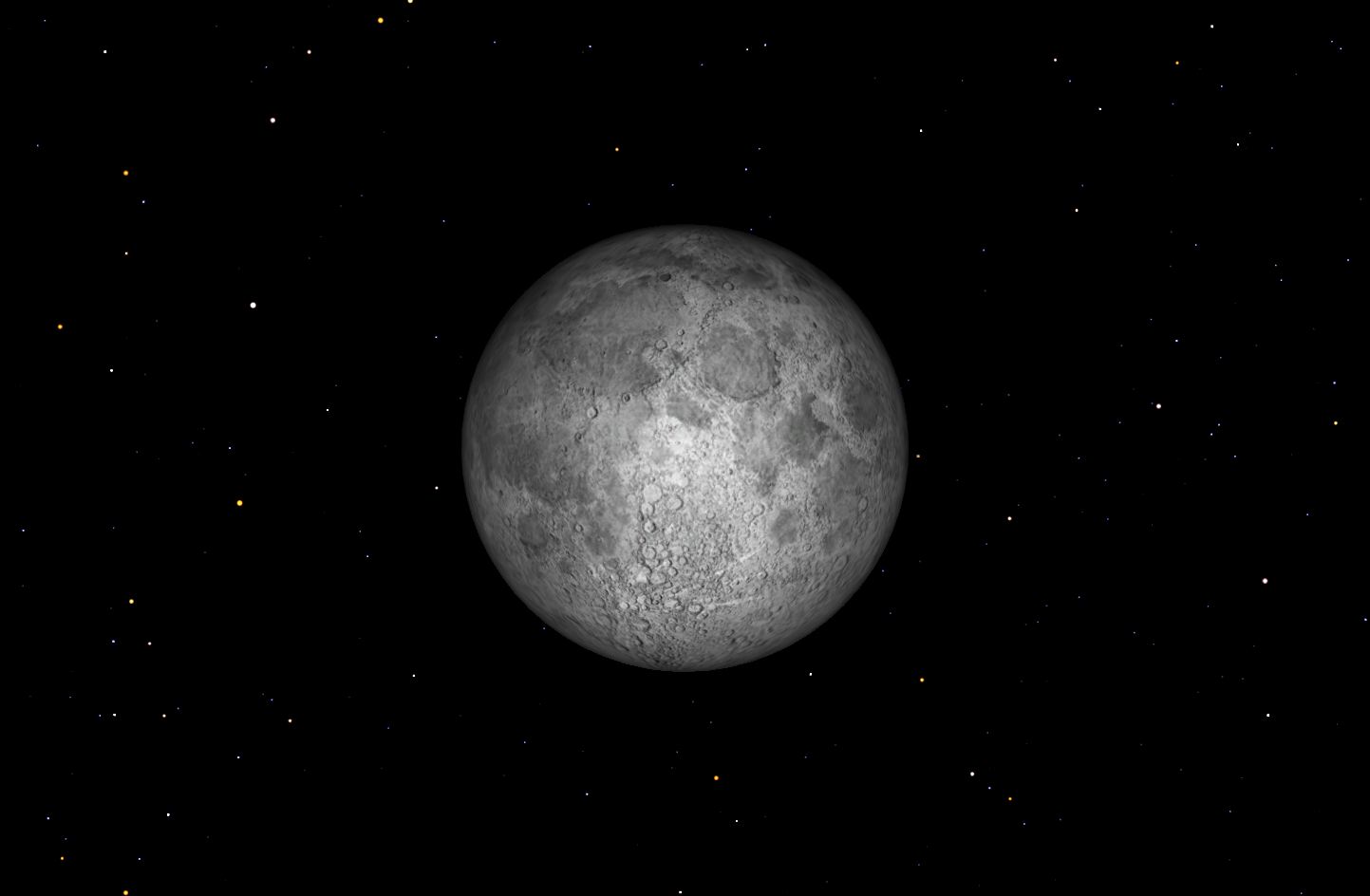
The December night sky can be a winter wonderland for stargazers, but only if you know when and where to look. See the best stargazing events of December 2014 in this gallery. Here we see the full moon of December: Saturday, Dec. 6, 7:27 a.m. EST. The Full Moon of December is known as the "Oak Moon," "Cold Moon," or "Long Nights Moon."
Last Quarter Moon, December 2014
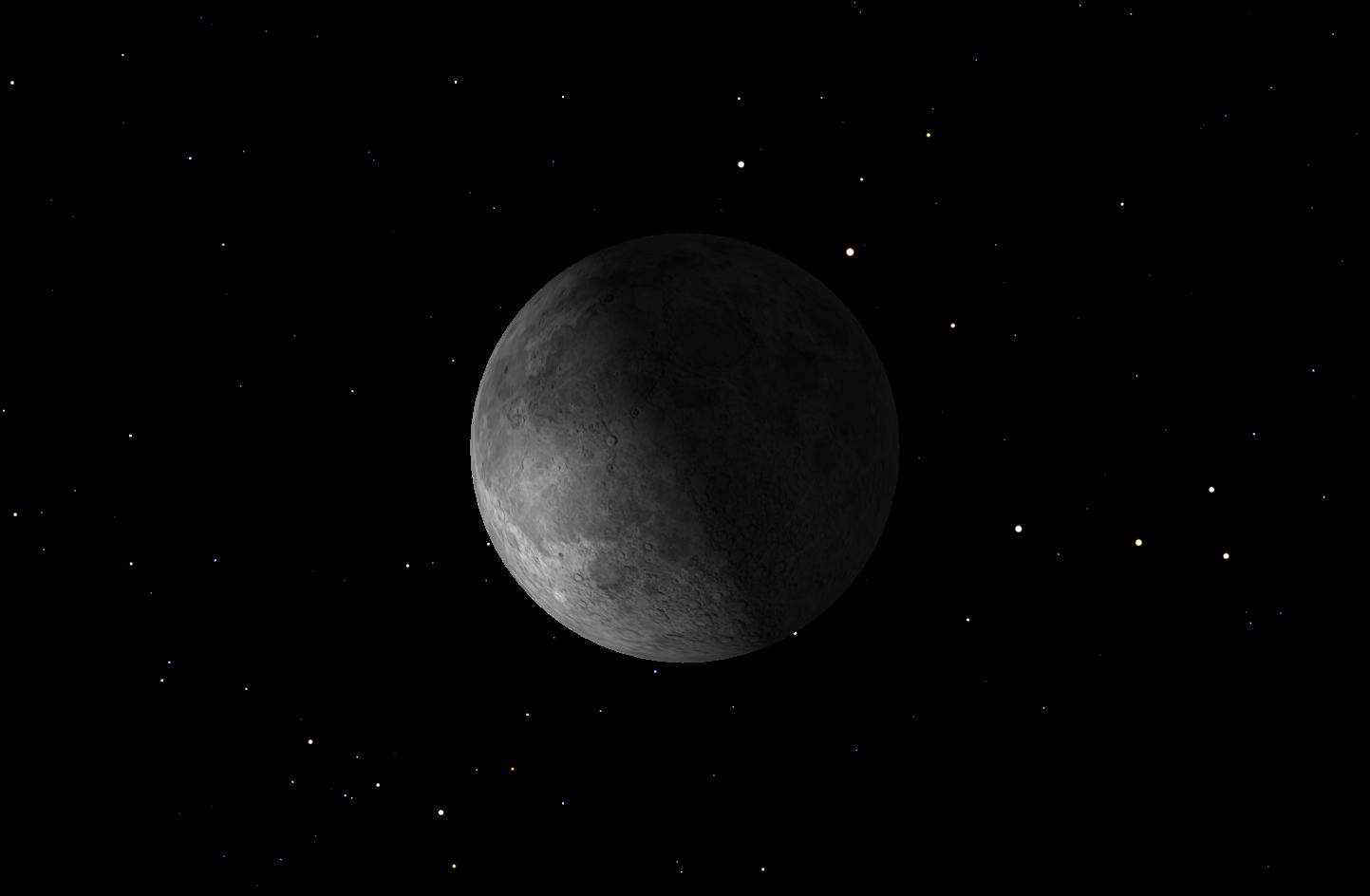
Sunday, Dec. 14, 7:51 a.m. EST. The Last Quarter Moon rises around 11:45 p.m. and sets around 12:15 p.m. It is most easily seen just after sunrise in the southern sky.
New Moon, December 2014
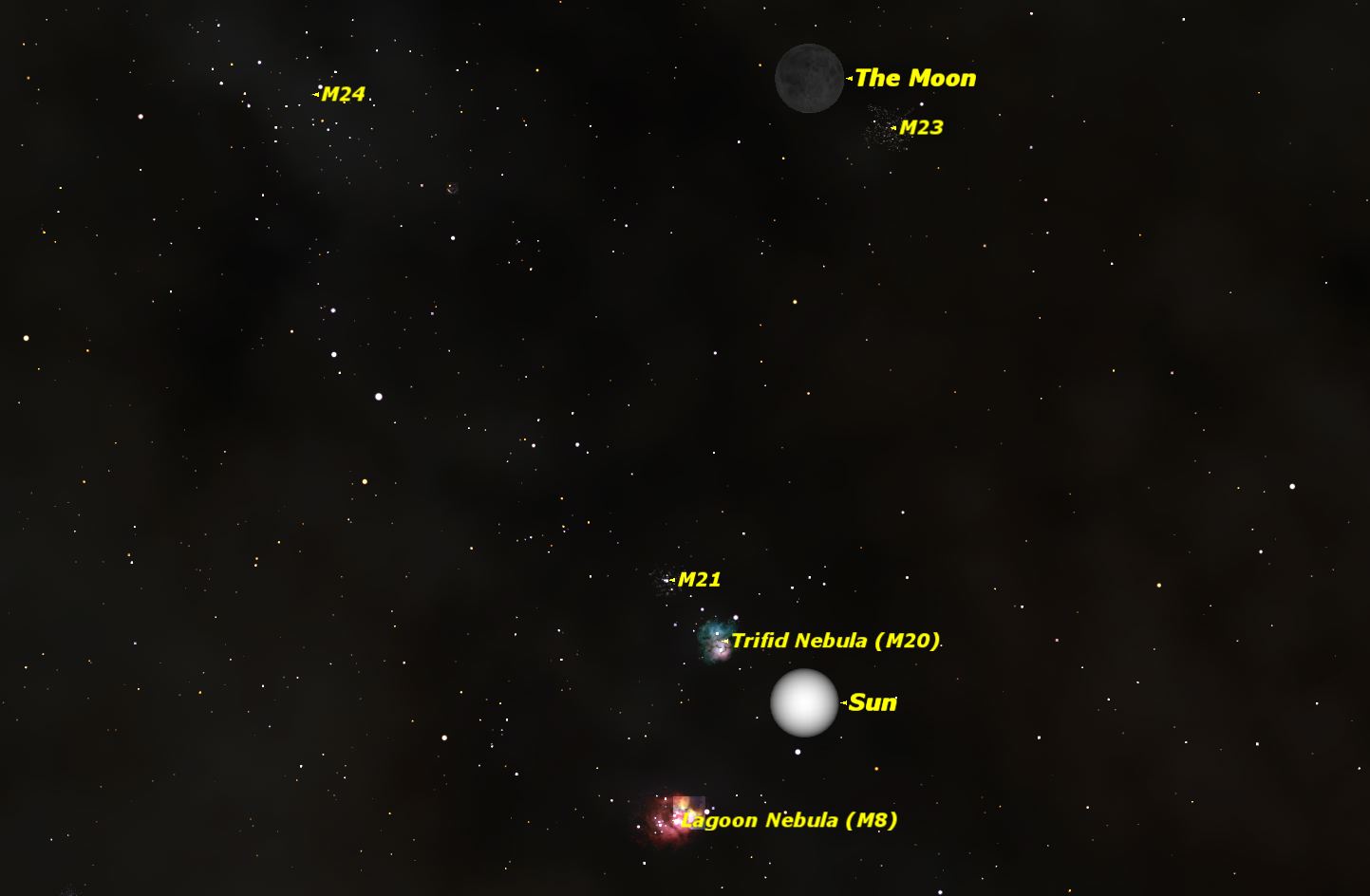
Sunday, Dec. 21, 8:36 p.m. EST. The moon is not visible on the date of New Moon because it is too close to the sun, but can be seen low in the east as a narrow crescent a morning or two before, just before sunrise. It is visible low in the west an evening or two after New Moon.
First Quarter Moon, December 2014
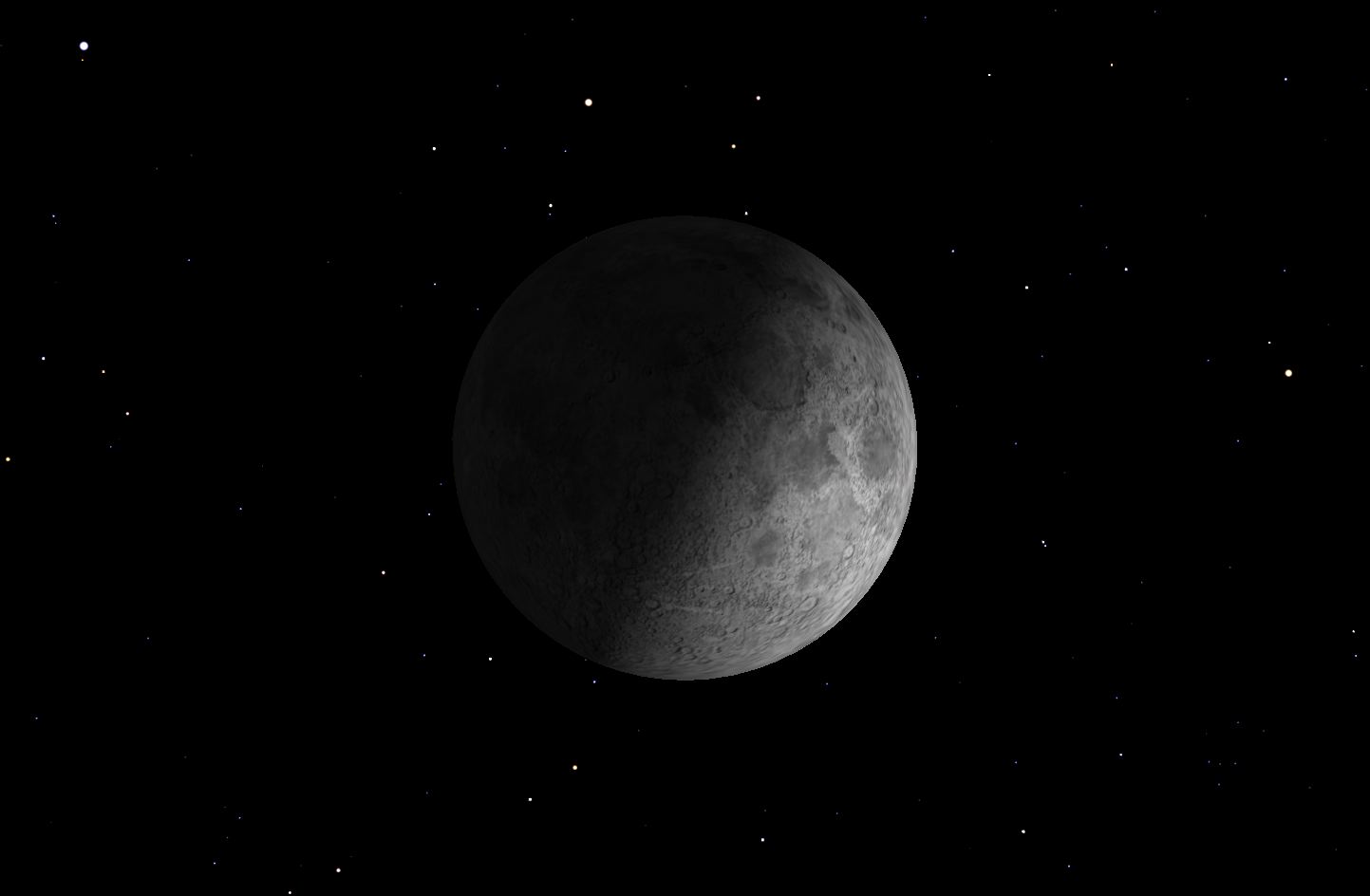
Sunday, Dec. 28, 1:31 p.m. EST. The First Quarter Moon rises around noon and sets around 1 a.m. It dominates the evening sky.
Uranus and the Moon, December 2014
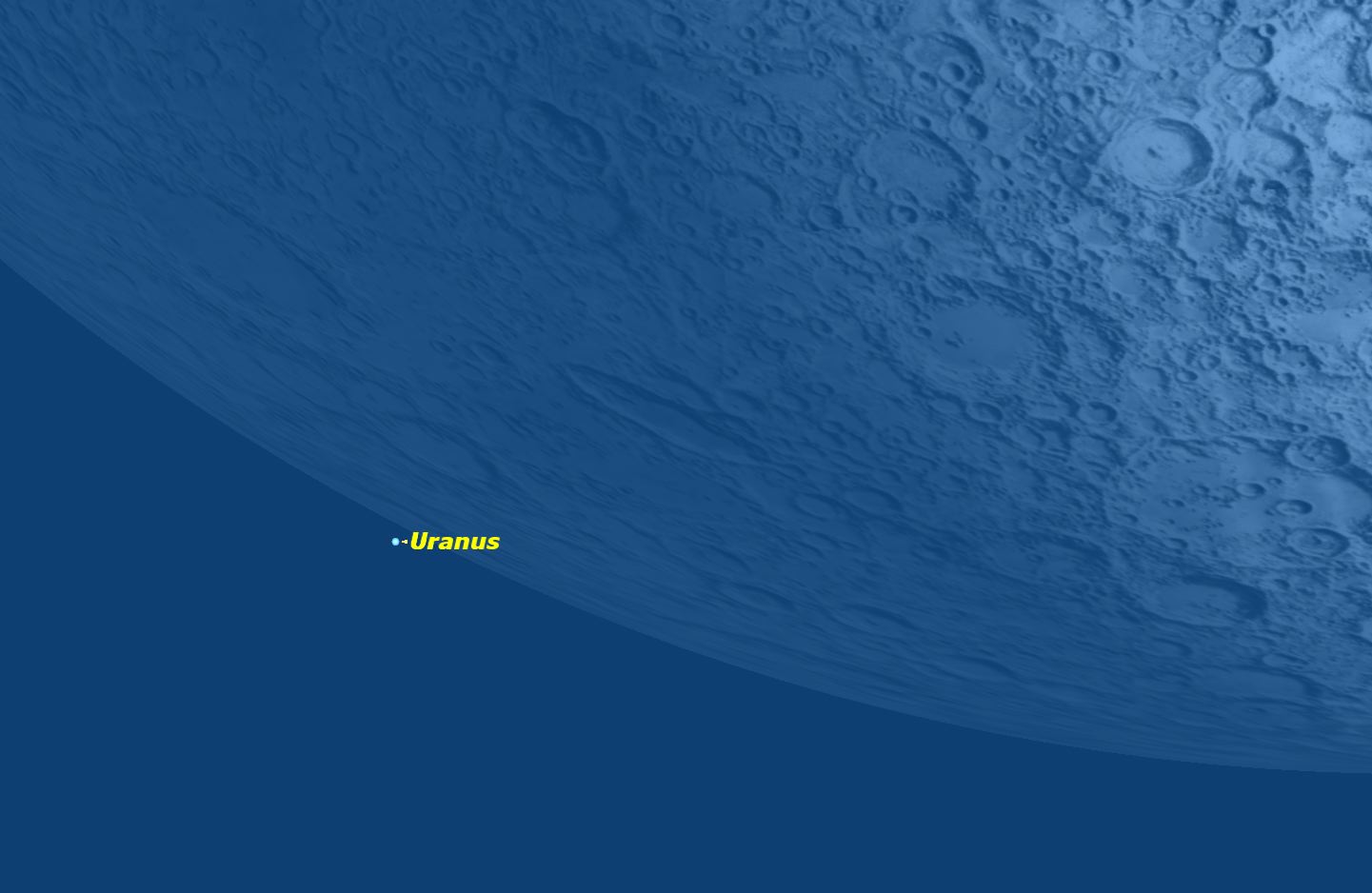
Monday, Dec. 1, 7 p.m. EST. The waxing gibbous moon will pass just north of the planet Uranus. Observers in northwestern Canada and eastern Alaska will see the moon occult Uranus, as in this view from Yellowknife, NWT, Canada.
Aldebaran and the Moon, December 2014
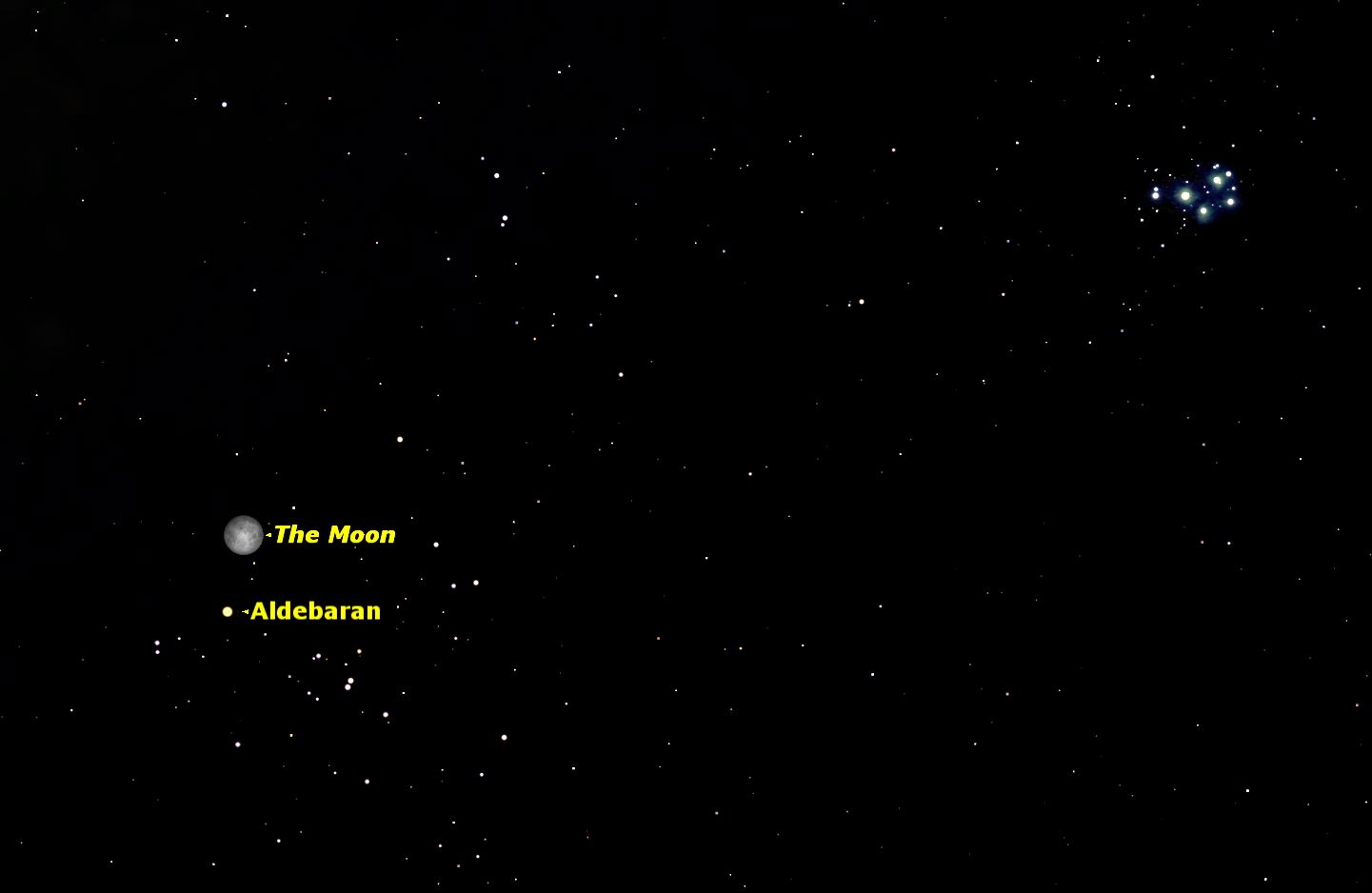
Friday, Dec. 5, midnight EST. The nearly full moon passes just north of the red giant star Aldebaran and the Hyades star cluster. The bright Pleiades star cluster is above and towards the west.
Double Shadow Transit on Jupiter, December 2014
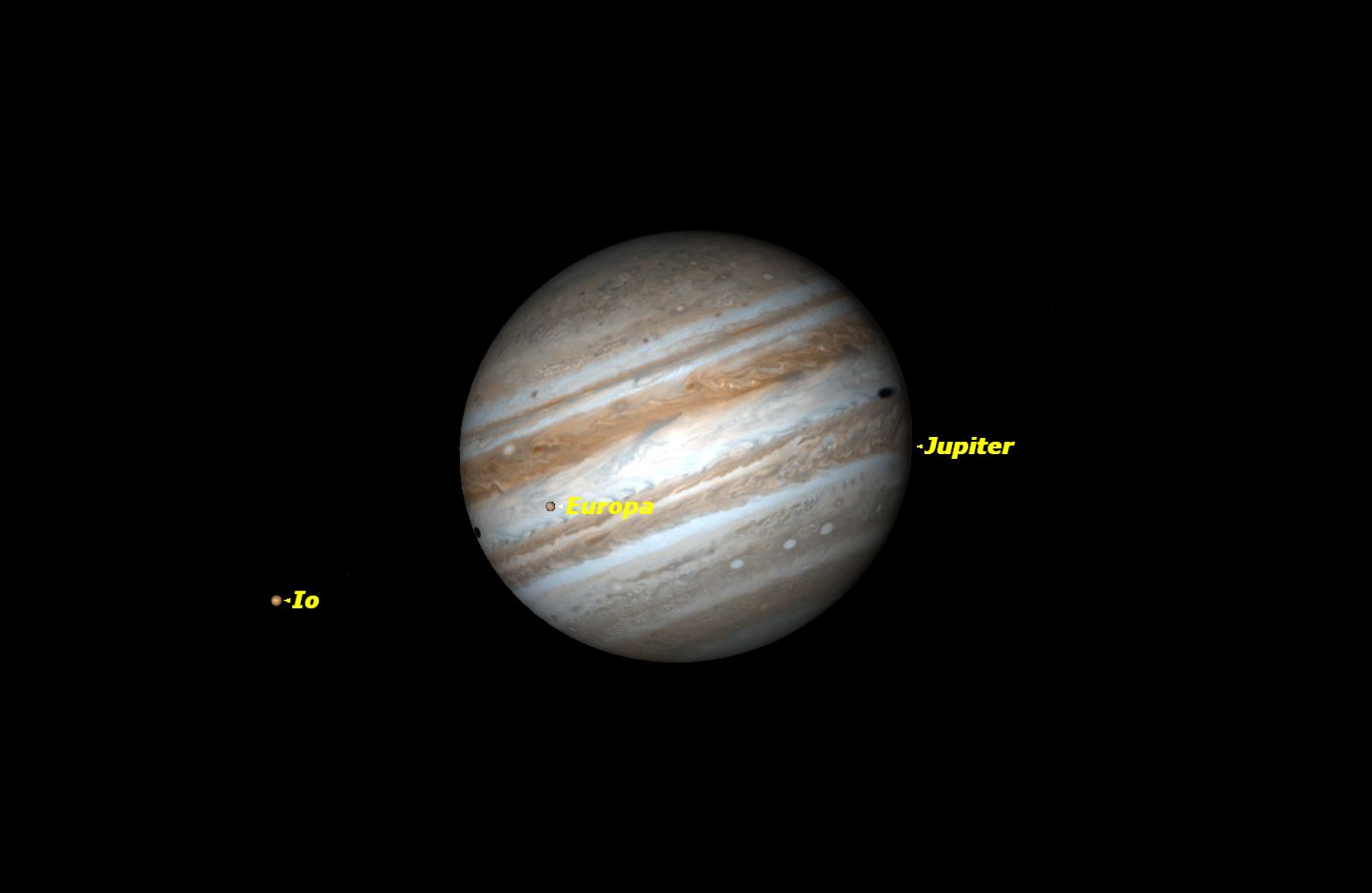
Monday, Dec. 8, 11:20–11:25 p.m. EST. For a brief 5-minute period, the shadows of both Io and Europa will fall simultaneously on opposite limbs of Jupiter, the first of a series of double transit events culminating in a triple shadow and satellite transit on January 24, 2015.
Get the Space.com Newsletter
Breaking space news, the latest updates on rocket launches, skywatching events and more!
Geminid Meteor Shower Peaks
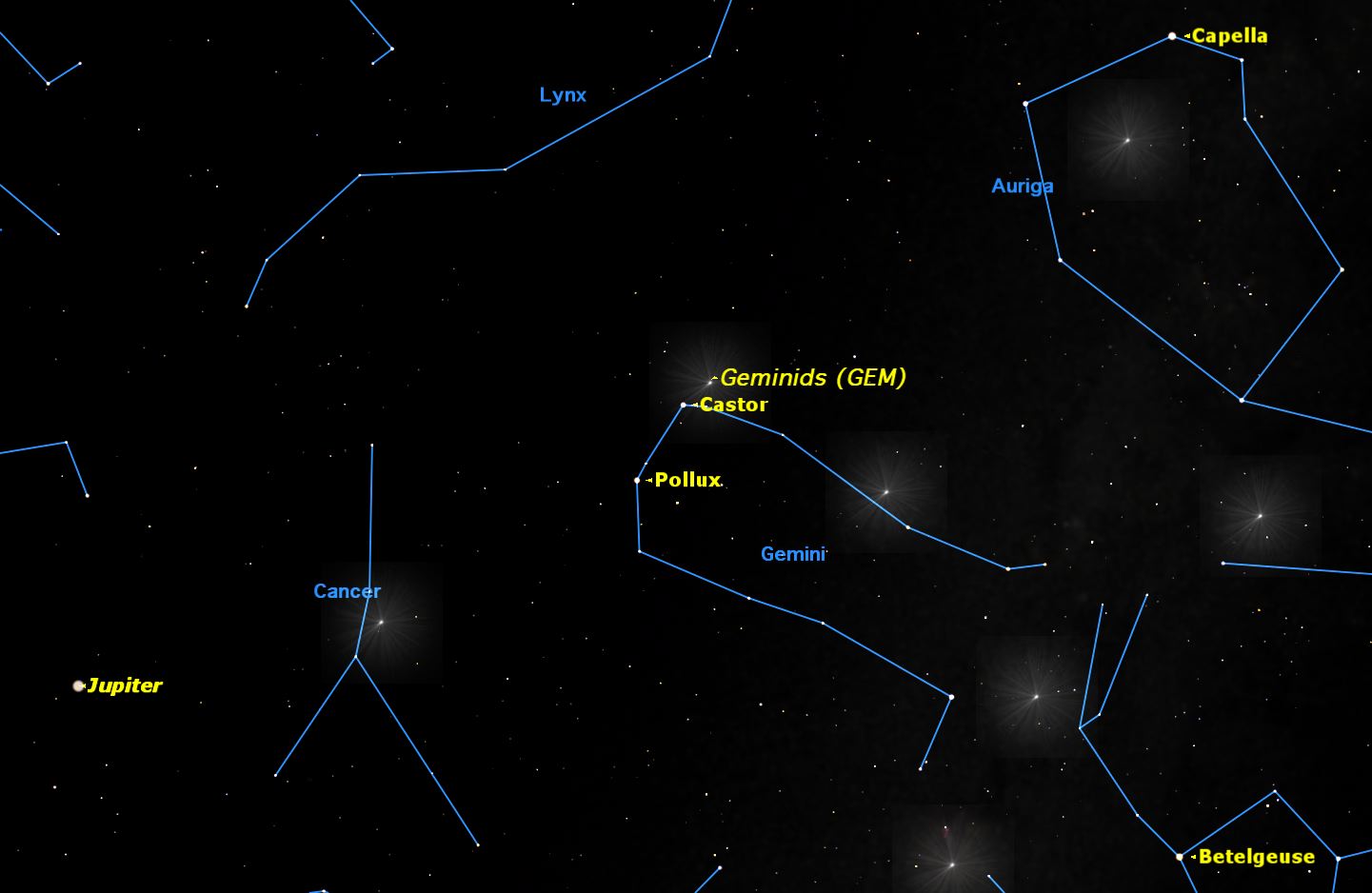
Sunday, Dec. 14, 7 a.m. EST. A last quarter moon will interfere with viewing this most reliable meteor shower. The best meteors will be visible about 90 degrees away from the radiant in Gemini.
Double Shadow Transit on Jupiter, Dec. 16, 2014
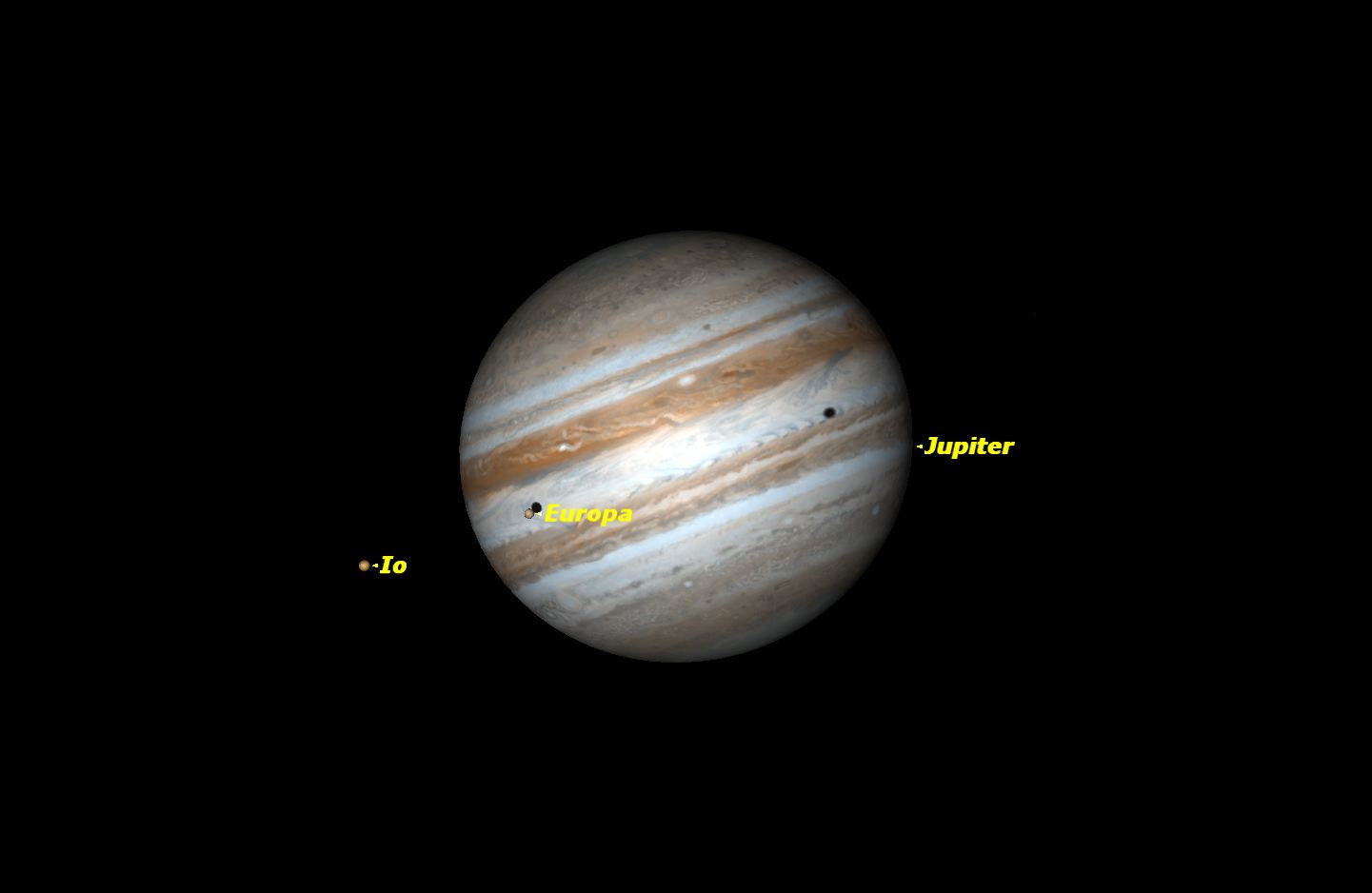
Tuesday, Dec. 16, 1:12–02:02 a.m. EST. For 50 minutes the shadows of both Io and Europa will fall simultaneously on Jupiter. Note that this event occurs after midnight on Monday, Dec. 15.
Saturn and the Moon, December 2014
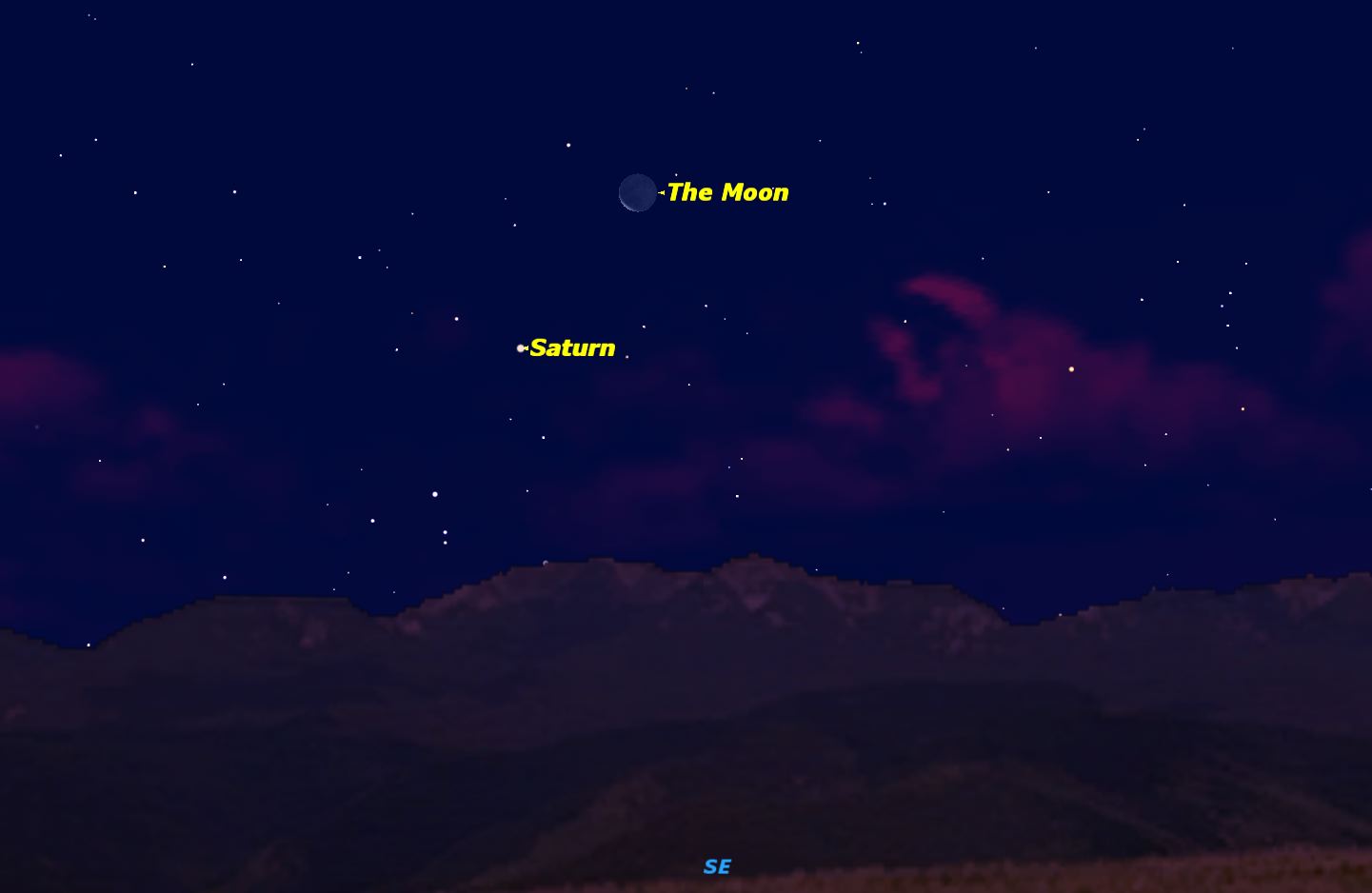
Friday, Dec. 19, 1 hour before sunrise. Saturn makes a reappearance as a “morning star” close to the slender waning crescent moon, just before sunrise Friday morning.
Winter Solstice, December 2014
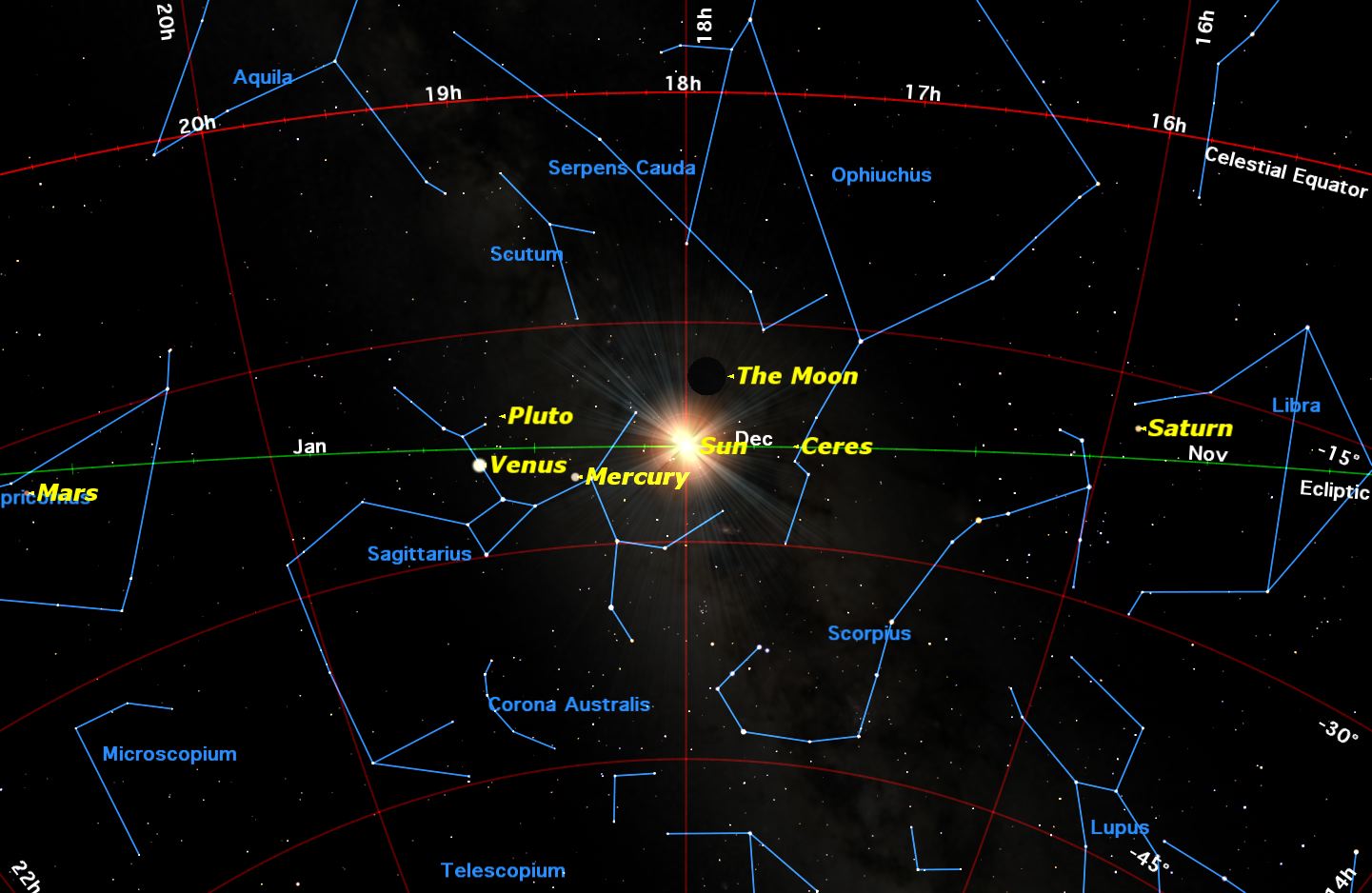
Sunday, Dec. 21, 6:03 p.m. EST. The sun reaches its southernmost position in the sky, and begins moving northward again. New Moon is less than 3 hours away, so the moon is close by, and the sun is flanked by four planets (Mars, Venus, Mercury, and Saturn) and two dwarf planets (Pluto and Ceres). As happens every year at the solstice, the sun is only a few degrees away from “alignment” with the black hole at the center of our galaxy. This is the summer solstice in the Southern Hemisphere.
Join our Space Forums to keep talking space on the latest missions, night sky and more! And if you have a news tip, correction or comment, let us know at: community@space.com.
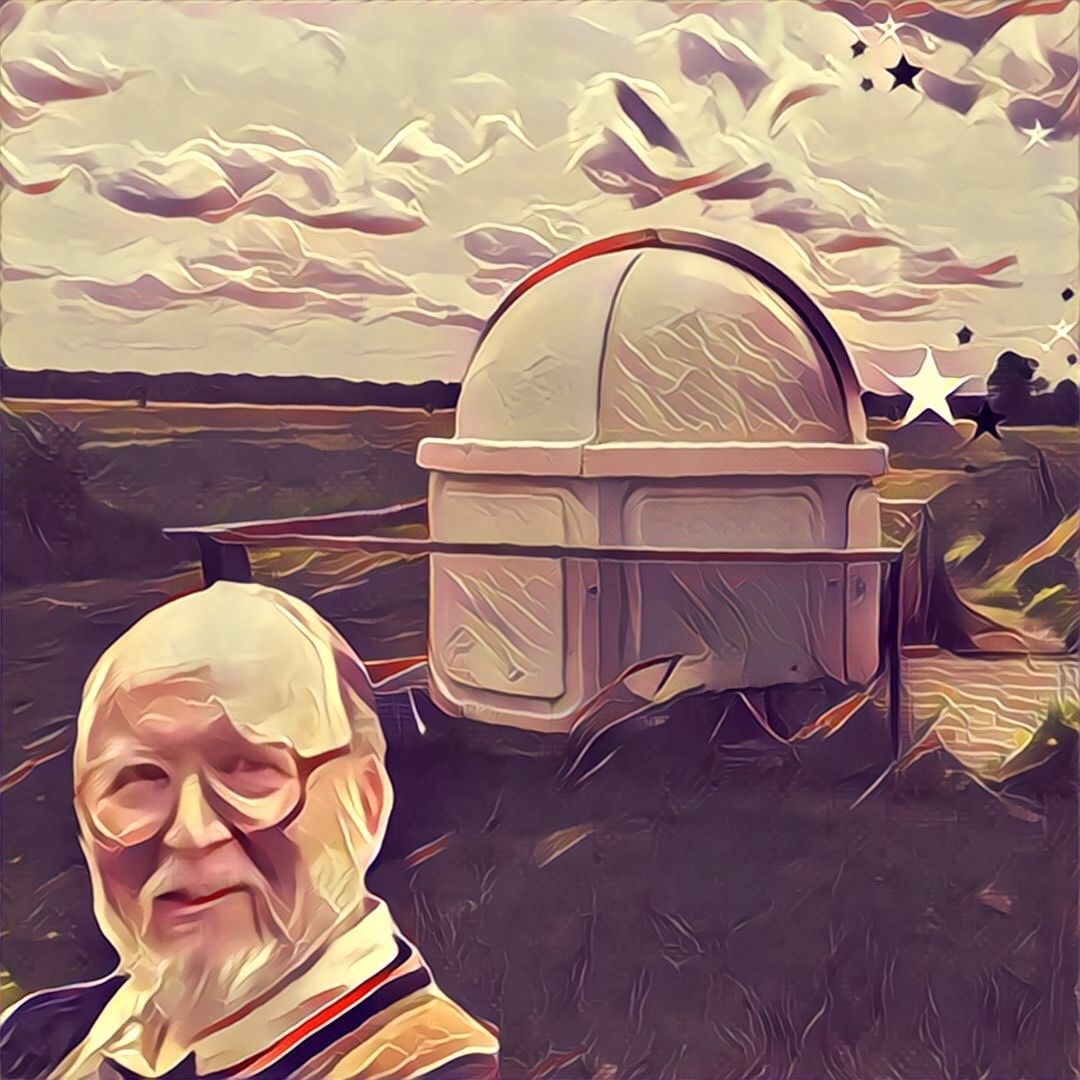
Geoff Gaherty was Space.com's Night Sky columnist and in partnership with Starry Night software and a dedicated amateur astronomer who sought to share the wonders of the night sky with the world. Based in Canada, Geoff studied mathematics and physics at McGill University and earned a Ph.D. in anthropology from the University of Toronto, all while pursuing a passion for the night sky and serving as an astronomy communicator. He credited a partial solar eclipse observed in 1946 (at age 5) and his 1957 sighting of the Comet Arend-Roland as a teenager for sparking his interest in amateur astronomy. In 2008, Geoff won the Chant Medal from the Royal Astronomical Society of Canada, an award given to a Canadian amateur astronomer in recognition of their lifetime achievements. Sadly, Geoff passed away July 7, 2016 due to complications from a kidney transplant, but his legacy continues at Starry Night.









